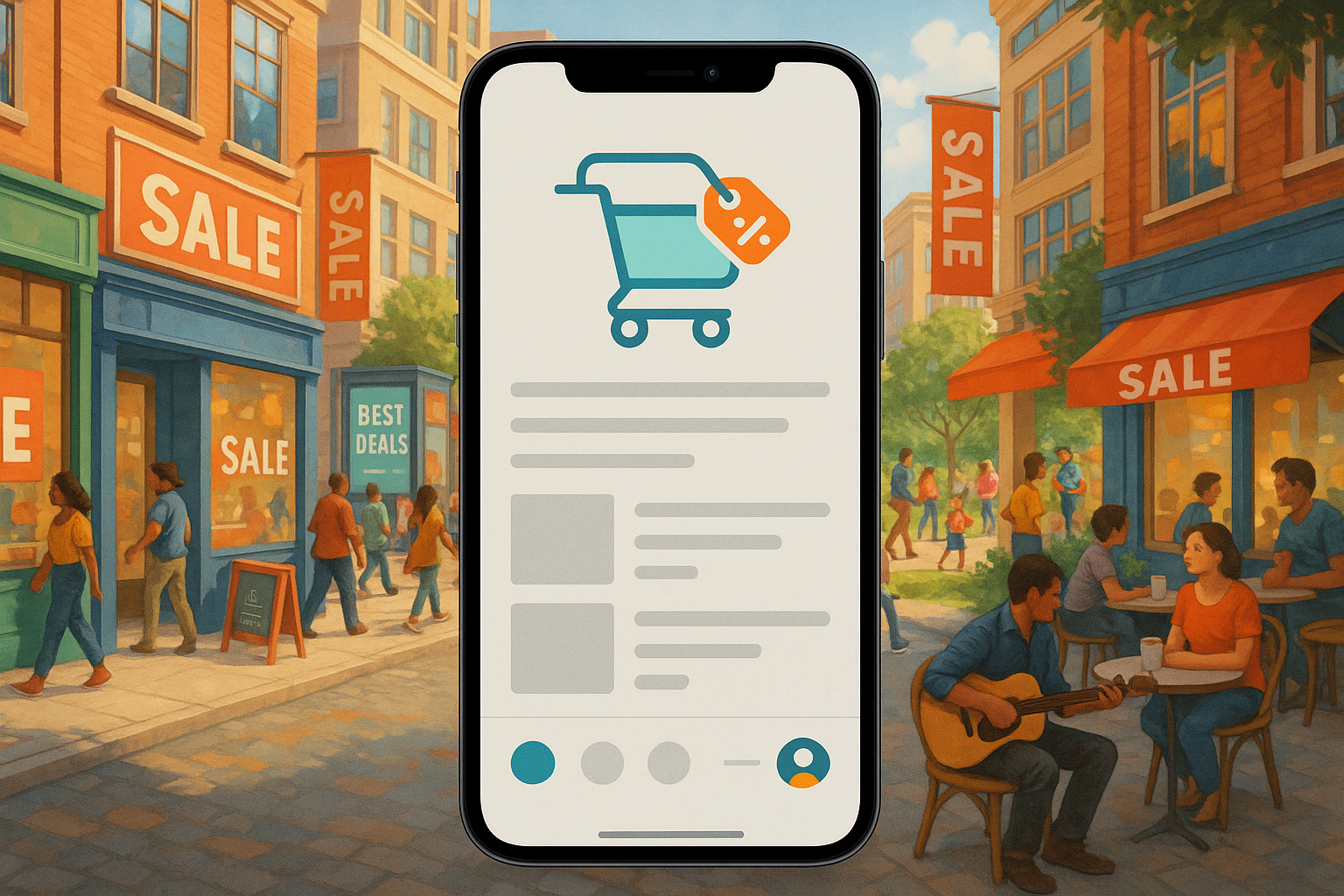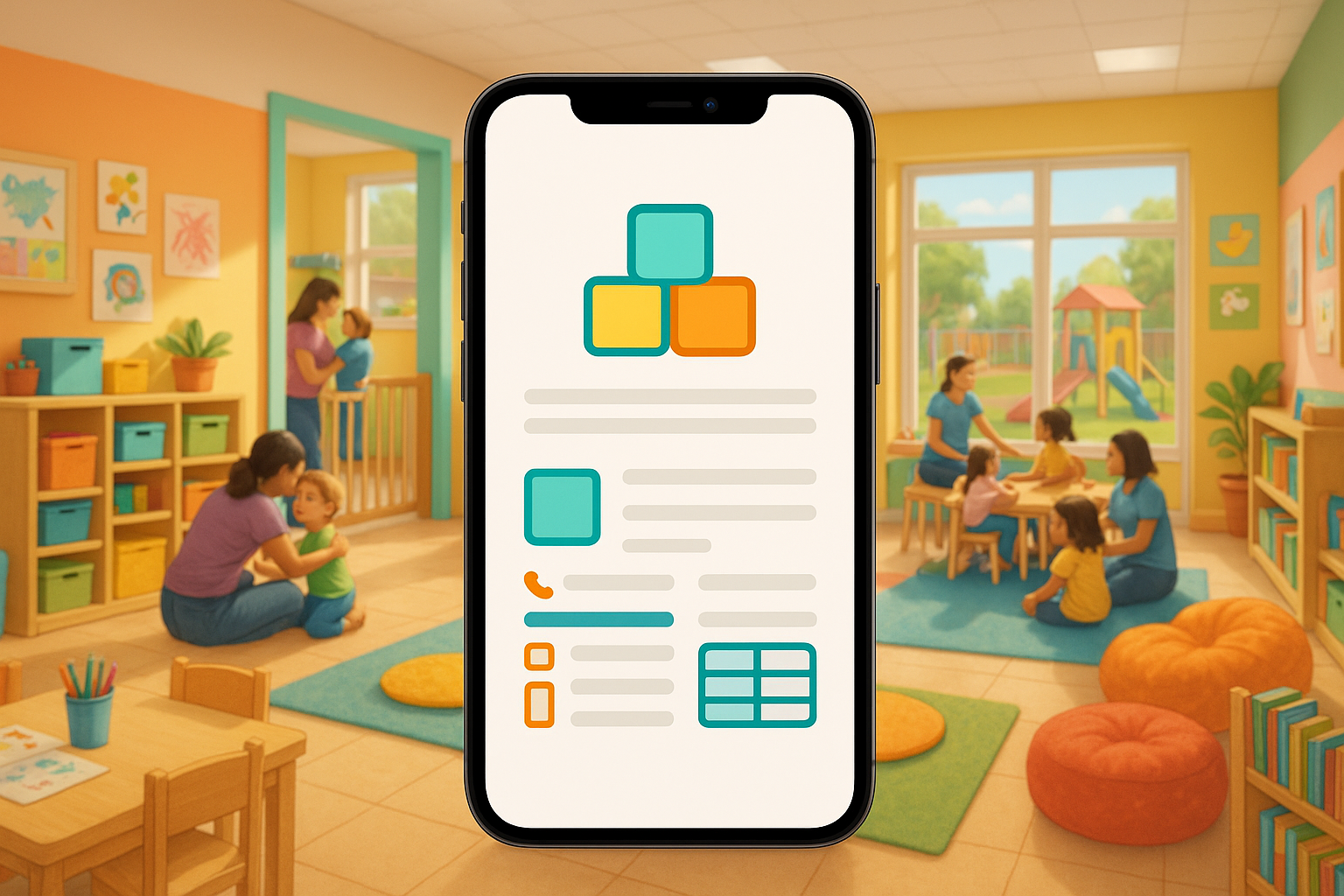In an economy where every dollar counts, consumers are constantly searching for ways to save money. This has fueled the explosive growth of coupon and deals applications, turning smartphones into powerful tools for savvy shoppers. For entrepreneurs and businesses, this trend represents a massive opportunity. However, diving into deals app development is a formidable challenge, fraught with technical complexities, strategic hurdles, and significant financial investment.
Building a platform that can aggregate thousands of deals, manage sensitive user data securely, and provide a seamless user experience is no small feat. This article serves as a comprehensive guide to navigating this intricate landscape. We will explore what a deals app entails, uncover the inherent difficulties of in-house development, categorize the different types of deals apps on the market, and provide a realistic estimate of development costs.
Furthermore, we will introduce the top development companies that can turn your vision into a reality. As a leading AI-powered mobile app development firm in the U.S., we at MetaCTO have over two decades of experience guiding businesses from concept to launch and beyond. We understand the challenges and have a proven process to build, grow, and monetize successful mobile applications. This guide will leverage our expertise to provide you with the insights needed to embark on your deals app development journey with confidence.
What is a Deals App?
At its core, a deals or coupon app is a software application, typically used on a smartphone, that allows users to save money when they shop. These platforms serve as a centralized hub for discounts, promotions, and savings opportunities that might otherwise be scattered across the internet or physical flyers. They bridge the gap between retailers who want to attract customers and consumers who are eager to find the best possible price on goods and services.
The functionality of these apps can vary widely, but the ultimate goal remains the same: to deliver tangible value to the user in the form of monetary savings. Some apps, like Rakuten, focus on giving users cash back on their purchases. When a user shops at a partner store through the Rakuten app or browser extension, they receive a percentage of their spending back, which can be paid out via PayPal. Others, like Honey, act as automated shopping assistants. Honey’s browser extension scours the internet for coupon codes and automatically applies the one that provides the biggest discount to a user’s online cart at checkout.
Beyond direct cash back and coupons, deals apps can offer a variety of other value propositions. Flipp, for instance, digitizes weekly store ads, allowing users to browse deals from over 2,000 stores in one place, compare prices on specific items, and even build grocery lists based on current sales. Meanwhile, apps like Ibotta and Checkout 51 require users to find offers, purchase the specified items, and then submit a photo of their receipt to earn cash back. This model effectively rewards users for purchasing items they might have been planning to buy anyway. The versatility and direct financial benefit of these applications are what make them an indispensable tool for modern consumers.
Reasons It Is Difficult to Develop a Deals App In-House
Embarking on the development of a deals app may seem straightforward initially, but building a robust, scalable, and trustworthy platform in-house presents a host of significant challenges. These aggregator business models are inherently complex, balancing the needs of multiple parties while navigating a treacherous technical and operational landscape.
The Challenge of Managing Supplier Relationships
An aggregator’s primary function is to bring together offerings from numerous external suppliers. A deals app must therefore establish and manage relationships with hundreds or even thousands of retailers, brands, and service providers.
The intricate nature of coordinating and sustaining relationships with numerous suppliers, all the while ensuring uniformity and excellence for the end-consumer, can indeed be overwhelming and demanding for aggregator models.
This involves negotiating partnerships, integrating disparate data feeds for deals and coupons, and ensuring the information presented to the user is always accurate and up-to-date. An in-house team without experience in large-scale partnership management and data integration will quickly find itself overwhelmed. Furthermore, the app’s success is directly tied to the quality and breadth of its deals, making supplier relationship management a mission-critical function that requires dedicated resources and expertise.
Vulnerabilities in the Supply Chain
The heavy reliance on external entities creates inherent vulnerabilities. An aggregator has no direct control over its suppliers’ operations.
Aggregators’ heavy reliance on external entities for the supply chain exposes aggregators to vulnerabilities stemming from disruptions that are outside aggregators’ sphere of influence.
A retailer could suddenly change its commission structure, pull its deals from the platform, or go out of business entirely. A technical glitch in a partner’s API could lead to outdated or incorrect deals being shown to users, damaging the app’s credibility. An in-house team must not only build the app’s core features but also architect resilient systems capable of handling these external disruptions gracefully, which requires deep experience in building fault-tolerant systems.
Data Security and Privacy Risks
Perhaps the most pivotal risk factor is in the domain of data security and privacy. To function, many deals apps require access to highly sensitive user information. Apps like Dosh link directly to a user’s debit card, while others like Ibotta and Rakuten require bank or PayPal information for cash-out.
Aggregators are entrusted with copious amounts of sensitive data stemming from both suppliers and consumers, rendering aggregators susceptible to cyber threats.
A security breach could expose financial data, purchase histories, and personal information, leading to devastating reputational damage, user exodus, and significant legal liability. Building a fortress-like security infrastructure that complies with regulations like GDPR and CCPA is a specialized discipline. An in-house team lacking dedicated cybersecurity experts is taking a monumental risk.
Maintaining a Harmonious Power Dynamic
Finally, an aggregator must constantly maintain a delicate balance of power between itself, its suppliers, and its consumers.
Maintaining a harmonious power dynamic among all stakeholders involved necessitates a nuanced comprehension of the interests and requisites of suppliers, consumers, and the aggregator itself.
The platform must provide enough value to retailers to keep them engaged, while simultaneously offering compelling enough deals to attract and retain users. If the aggregator takes too high a commission, suppliers may leave. If the deals aren’t attractive enough, users won’t download the app. This strategic balancing act influences every aspect of the app’s design, from its business model to its feature set.
These challenges are precisely why partnering with an experienced development agency like MetaCTO is a strategic advantage. With over 20 years of experience and more than 120 successful projects, we have navigated these complexities before. Our team can architect the secure, scalable infrastructure required, while our strategic guidance helps you build a sustainable business model that serves all stakeholders. Our Custom Mobile App Development service handles the entire process—design, build, and launch—allowing you to focus on building the business relationships that will make your app thrive.
Different Types of Deals Apps
The world of deals apps is not monolithic. Different applications cater to various consumer habits and saving preferences by employing distinct models. Understanding these categories is crucial for defining your own app’s niche and value proposition.
1. Cash-Back Apps
This is one of the most popular categories. These apps reward users with a percentage of their purchase price back in the form of real cash or points convertible to cash. They monetize through affiliate commissions from partner retailers.
- Rakuten: A giant in this space, Rakuten gives users cash back on purchases made through its app or browser extension. It offers coupon codes as well and pays users via PayPal. Its standout feature is straightforward cash back, and it even offers a $10 bonus for new users after they spend their first $25.
- Ibotta: This app requires a bit more user interaction. Users add offers for specific products to their account, purchase them, and then upload a photo of their receipt to get cash back. Earnings can be cashed out to a bank account, PayPal, or a gift card once a $20 threshold is reached.
- Dosh: Dosh simplifies the process by eliminating receipt scanning and promo codes. Users link their debit card to the app, and Dosh automatically tracks purchases at participating locations and deposits cash back into the user’s Dosh “wallet.”
- Checkout 51: Similar to Ibotta, Checkout 51 focuses on groceries and gas. Users browse weekly offers, buy the featured items, and snap a picture of their receipt to earn cash.
2. Coupon and Promo Code Finders
These apps are dedicated to finding and applying discount codes for online and in-store shopping, saving users the trouble of searching for them manually.
- Honey: Primarily a browser extension for Chrome, Firefox, and Safari, Honey automatically searches for and applies the best available coupon codes to a user’s cart at checkout. When shopping on Amazon, it can also alert users if another seller offers a better price.
- RetailMeNot: This app acts as a massive hub for coupon codes. Users can search for a specific store, and RetailMeNot will list all active offers. It’s a one-stop shop for finding a promo code or a 20% off coupon.
- Sherpa Perks: This app focuses on providing coupon codes for specific stores that can be shown directly from the user’s phone screen to the retailer for instant savings.
3. Price Comparison and Deal Aggregators
These platforms empower users by providing transparent pricing information, helping them find the absolute lowest price for a product or service.
- Flipp: Flipp consolidates digital weekly ads from over 2,000 stores, making it easy for users to compare prices, especially during deal-heavy holidays. It also helps with meal planning and grocery lists based on what’s on sale.
- ShopSavvy: A powerful price comparison tool, ShopSavvy allows users to scan a product’s barcode in a store to see if a better deal exists online or at a nearby competitor. It also pulls in user reviews, providing a summary of pros and cons.
- GasBuddy: As its name suggests, GasBuddy focuses exclusively on finding the cheapest gas prices in a user’s local area. It also offers its own payment card that links to a user’s checking account and can save up to 25 cents per gallon.
- GoodRx: This app tackles the high cost of healthcare by allowing users to compare prescription medication prices at local pharmacies, often providing extra coupons for additional savings.
4. Points and Rewards Apps
Instead of direct cash back, these apps allow users to accumulate points (or “kicks”) for various activities, which can then be redeemed for gift cards or other rewards.
- Drop: Users collect reward points on purchases, including groceries and Uber rides. They can also play in-app games to earn more points, which are then traded for gift cards to popular retailers like Amazon and Starbucks.
- Shopkick: Uniquely, Shopkick allows users to earn points without even making a purchase. Users can earn “kicks” simply by walking into a store or scanning the barcodes of specific products. These kicks are redeemable for gift cards.
- Receipt Hog: This app rewards users with points for scanning any receipt from any store. It also allows users to “double-dip” by using other discount apps and still getting points from Receipt Hog for the same purchase.
5. Store-Specific Apps
Many large retailers have integrated deals and coupons directly into their own dedicated mobile apps to foster loyalty and drive sales.
- Target Circle: Integrated into the main Target app, Target Circle offers coupons and major savings across all categories, from groceries to home goods. It also provides special deals for users of Target’s pickup and delivery services. For even greater savings, the Target RedCard (a debit card option) gives users an automatic 5% off every purchase and free shipping.
Cost Estimate for Developing a Deals App
Determining the exact cost to develop a daily deals app is not a simple calculation; it depends on a multitude of variables that can significantly influence the final investment. For anyone looking to enter this market, understanding these factors is the first step toward creating a realistic budget and project plan.
The cost of building an app similar to Groupon or Rakuten is fundamentally tied to the time and resources required for development, which are shaped by the following key factors:
-
Platform Choice: A primary cost driver is the choice of platform. Developing a native app for a single platform, such as an Android app, is the most budget-friendly starting point. However, to reach the widest audience, most businesses will eventually need an app for both Android and iOS. Building for a second platform will substantially increase the cost, as it often involves a separate development process.
-
App Complexity: The features and functionality you want to include will dramatically affect the price.
- A basic version with core features like deal listings, user registration, and a simple search function will cost the least.
- A medium-complexity app might add features like geolocation for local deals, push notifications, user reviews, and integration with payment gateways.
- A high-end, complex app could include advanced features like AI-powered deal recommendations, automated coupon application like Honey, receipt scanning technology like Ibotta, and direct integration with retailer inventory systems. The basic version costs very little compared to the medium and high-end complexity levels.
-
Development Team Selection: Who you hire to build your app plays a major role in the cost. Choosing a startup or a small freelance team will generally have lower upfront charges. Conversely, partnering with a large, multinational development company will come with a higher price tag, reflecting their overhead, extensive processes, and established reputation.
-
Developer Location: The geographic location of your development team is one of the most significant cost variables due to vast differences in hourly rates. The cost for a developer to build a Groupon-like app differs from region to region.
| Region | Average Hourly Rate |
|---|---|
| India | $10 - $80 |
| Eastern Europe | $30 - $150 |
| United Kingdom | $60 - $70 |
| Australia | $100 - $110 |
| North America | $150 - $170 |
For those on a tighter budget, opting for a development team from India or Eastern Europe can be a cost-effective choice.
Given these factors, a rough cost estimate for a deals app can be projected. Building a native app for a single platform, like Android, is likely to cost around $20,000 to $30,000. If you decide to add a second platform, such as an iPhone app, the total investment will likely exceed $25,000 for that platform alone. It is crucial to remember that these figures are approximate. The final cost will diversify according to your unique ideas and the specific characteristics of your app.
At MetaCTO, we help clients navigate these financial decisions by starting with our Rapid MVP Development service. By focusing on core features first, we can help you launch a streamlined version of your app in 90 days or less. This approach allows you to test your concept, gather real user feedback, and secure investor interest while keeping initial costs low and timelines short.
Top Deals App Development Companies
Choosing the right development partner is arguably the most critical decision you will make. The right company brings not just coding skills, but also strategic insight, industry experience, and a proven process. Here is a look at some of the top companies specializing in eCommerce and deals platforms, starting with our own proven approach at MetaCTO.
1. MetaCTO
As a premier, U.S.-based mobile app development agency, we position ourselves as more than just developers; we are strategic partners dedicated to your app’s entire lifecycle. With over 20 years of experience, a portfolio of over 120 successful projects, and a 5-star rating on Clutch, we have a deep understanding of what it takes to build, launch, grow, and monetize a successful application.
Our process is designed for clarity and efficiency. We begin with a free consultation to understand your goals, followed by the creation of a product strategy roadmap. Our 90-day MVP service is the fastest way to get your app from idea to market, allowing you to validate your concept and attract users and investors quickly. We handle every step of the process—design, build, and launch—ensuring your app is market-ready and delivers a smooth user experience from day one.
Unlike many firms, our partnership doesn’t end at launch. We provide services for App Store Optimization & Growth to acquire and retain users, and we help you implement effective monetization strategies. As your business scales, we ensure your app evolves with it, upgrading it with the latest technology, including custom Ai solutions, to keep you competitive. Trusted by brands like Carlyle Group, Liverpool FC, and the American Bible Society, we build apps the right way, from day one.
2. MobiLoud
MobiLoud is an eCommerce app development company with a unique approach. Instead of building an app from scratch, MobiLoud is a platform that converts your existing eCommerce website into a mobile app. This method significantly cuts down on development time and cost.
| Feature | Details |
|---|---|
| Approach | Reuses existing website code to create a synchronized app. |
| Key Features | Native push notifications, mobile payment integrations, native UI elements. |
| Pros | Fast launch (under a month), affordable pricing (starts at a few hundred per month), handles app store submission and maintenance, full money-back guarantee. |
| Cons | Less customization than a custom build, may not be able to use native mobile hardware features. |
| Best For | ECommerce brands with an existing, robust website who want to launch an app quickly and affordably. |
3. SolveIt
SolveIt is a European-based, full-service software development company that builds custom apps from the ground up. They work with a variety of modern technologies like Kotlin, Swift, and React to develop apps for both Android and iOS.
| Feature | Details |
|---|---|
| Approach | Full-service custom app development. |
| Key Features | Payment integrations, inventory management, custom reporting, admin panels. |
| Pros | Fast turnaround (MVP in 3 months), fully customized to user wishes, 30-day warranty post-launch. |
| Cons | Expensive minimum project size ($50,000), does not reuse existing web code, resulting in separate codebases for the app and website. |
| Best For | Businesses needing a highly customized app and having a significant budget. |
4. Digis
Digis is an app development company with a strong focus on eCommerce. They have experience building both native and cross-platform hybrid apps for startups and large companies alike.
| Feature | Details |
|---|---|
| Approach | Full-service custom app development. |
| Key Features | Shopping cart integration, payment gateways, analytics reporting, push notifications. |
| Pros | Relatively low minimum project cost ($5,000), strong eCommerce focus, support across six time zones. |
| Cons | Not as established as some competitors, will likely result in two separate codebases for the app and website. |
| Best For | Startups and businesses looking for an experienced eCommerce developer with a lower barrier to entry. |
5. Cubix
With 14 years in the business, Cubix is a well-established, full-service app developer that has worked with a range of clients from startups to large enterprises. They have significant experience building eCommerce apps.
| Feature | Details |
|---|---|
| Approach | Full-service custom app development. |
| Key Features | Wish lists, multiple payment options, order tracking, strong NDA policies. |
| Pros | Extensive experience, works with companies of all sizes, offers post-launch maintenance plans. |
| Cons | Does not reuse existing web code. |
| Best For | Companies that prioritize experience and strong confidentiality agreements. |
6. Blitz Mobile Apps
Blitz Mobile Apps has nearly two decades of software development experience and offers a full-suite app design experience, from initial user interface design to post-launch maintenance and analytics.
| Feature | Details |
|---|---|
| Approach | Full-suite custom app development and design. |
| Key Features | Shopping carts, customer chat, social media integration, metric analysis. |
| Pros | Low minimum project cost ($5,000), extensive eCommerce portfolio, provides a full development experience. |
| Cons | Hourly rate can get expensive ($50 - $99/hr), may not reuse existing web code. |
| Best For | Businesses that want a single partner to handle everything from ideation to post-launch analysis. |
7. Droids on Roids
Droids on Roids is an open-source mobile app development company with 12 years of experience. They are known for their project workshops that help clients define their app’s form and function before development begins.
| Feature | Details |
|---|---|
| Approach | Open-source, custom app development. |
| Key Features | Project workshops for planning, quality assurance, post-launch maintenance plans. |
| Pros | Extensive mobile eCommerce experience, open-source code offers flexibility, workshops provide cost and process clarity. |
| Cons | Very high minimum project cost ($50,000) and expensive hourly rate ($50 - $99/hr). |
| Best For | Well-funded enterprises that value collaborative planning and open-source flexibility. |
8. STRV
STRV is a high-end, full-service app builder that has been in business since 2004. They have created apps for major brands like Barry’s and Barnes & Noble and are known for their thorough and detailed process.
| Feature | Details |
|---|---|
| Approach | Premium, full-service custom app development. |
| Key Features | Mobile App Calculator for cost estimates, extensive QA testing, full design services (UI/UX). |
| Pros | Nearly 20 years of experience, has worked with big-name brands, provides a very detailed development process. |
| Cons | Very high minimum project cost ($100,000) and an expensive hourly rate ($100 - $149/hr). |
| Best For | Large, established brands with a substantial budget seeking a premium development partner. |
Conclusion
The journey of developing a deals app is as complex as it is promising. We have explored the fundamental nature of these applications, which serve as invaluable tools for consumers looking to save money. We’ve also delved into the significant in-house challenges, from managing intricate supplier relationships and navigating supply chain vulnerabilities to safeguarding sensitive user data—all of which underscore the need for expert guidance. By categorizing the diverse landscape of deals apps—from cash-back and coupon finders to price comparison and rewards platforms—it becomes clear that a well-defined niche is key to success.
Furthermore, the financial investment required is substantial, with costs heavily influenced by platform choice, app complexity, and the location of your development team. While there are many capable development firms, each with its own strengths and weaknesses, choosing the right partner is paramount. The decision impacts not only your budget and timeline but the very quality and long-term viability of your product.
Building a successful app requires more than just code; it requires a strategic partner who understands the market, anticipates challenges, and can guide you through every stage of the product lifecycle. Don’t navigate this complex journey alone. Talk with a deals app development expert at MetaCTO today to get a clear plan, build your app the right way, and turn your vision into a profitable, market-ready reality.






